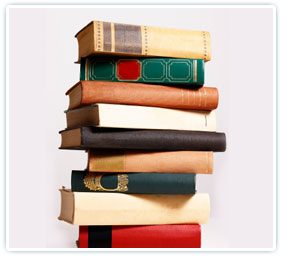
Most people find, sooner or later, that they possess a habit or trait that does not serve them well. It might be procrastination, pessimism, or difficulty making friends. When people discover these things about themselves, it is not uncommon to make vows to change the offending behavior. The very next thing they discover is that unassisted change is difficult. Help comes in many forms, but the simplest and probably least expensive form is the self-help book. While literally thousands of self-help books line the shelves of bookstores and libraries, the following list points out ten of the best self-help books of all time.
How to Win Friends and Influence People by Dale Carnegie
One of the very first, and perennially popular, self-help books out there, How to Win Friends and Influence People offers exactly what the title advertises. The modern version of the text is divided into four thematic sections: handling people, getting them to like you, winning people over, and changing people’s minds. Each section provides techniques or principles for achieving one of the given goals.
7 Habits of Highly Effective People by Stephen Covey
Covey’s approach is broad-based and aimed at helping people to develop a more proactive, independent life approach through seven principles. His advice ranges from topics such as time management and empathetic listening to synergy in the workplace.
Think and Grow Rich by Napoleon Hill
Another classic title that enjoys enduring popularity, Think and Grow Rich presents the reader with a set of principles aimed at helping the individual achieve financial success. Unlike contemporary, get-rich-quick scams, Hill stresses principles such as persistence and planning, while giving due credit to intangibles like imagination and the subconscious mind.
The Secret by Rhonda Byrne
Byrne’s, The Secret, presents the reader with the law of attraction: a principle that essentially offers that like will attract like (i.e. good thoughts will attract good things). The book also offers the reader techniques for using the law of attraction across a range of normal life situations.
The 4-Hour Work Week by Tim Ferriss
Largely aimed at the overworked, The 4-Hour Work Week provides readers with a four-part strategy for reducing the amount of time they spend working, while maintaining or increasing income.
Awaken the Giant Within by Tony Robbins
Here, Robbins presents a variety of techniques and strategies for personal empowerment in both the personal and professional spheres. He borrows heavily on neuro-linguistic programming, but also provides useful advice on modeling behaviors, the power of the right vocabulary, and changing beliefs.
Feel the Fear and Do It Anyway by Susan Jeffers
The essential premise of the book is that much of what holds us back in life finds its root in one kind of fear or another. Jeffers presents readers with a range of techniques and strategies for overcoming those fears in our pursuit of more fulfilling life.
As a Man Thinketh by James Allen
Quite possibly the grandfather of all modern self-help books, As a Man Thinketh focuses largely on the power of thoughts to shape lives. Less mystical in approach than some of its more contemporary progeny, the book offers that the content of a person’s thoughts is effectively the delimiting factor in almost all endeavors, both personal and professional. In order to achieve in any realm, the content of the mind must be changed to match the desired goal.
The Road Less Traveled by M. Scott Peck
Something of a landmark in the field of self-help books, Peck’s book presents a picture of what it takes to be a complete human being, as seen through the psychiatric lens. He offers up chapters ranging across issues like delayed gratification, ego boundaries, the nature of love and even religion. While somewhat theoretical and even a bit tame compared with flashier books written since, The Road Less Traveled still offers much useful insight into what it means to be a whole person.
Learned Optimism by Martin Seligman
Based in years of clinical research by the author, Martin Seligman, PhD., Learned Optimism offers explanatory information regarding pessimism and optimism, along with the various consequences to health and quality of life each yield. The book also presents a set of techniques that allow pessimists to learn how to be optimists.